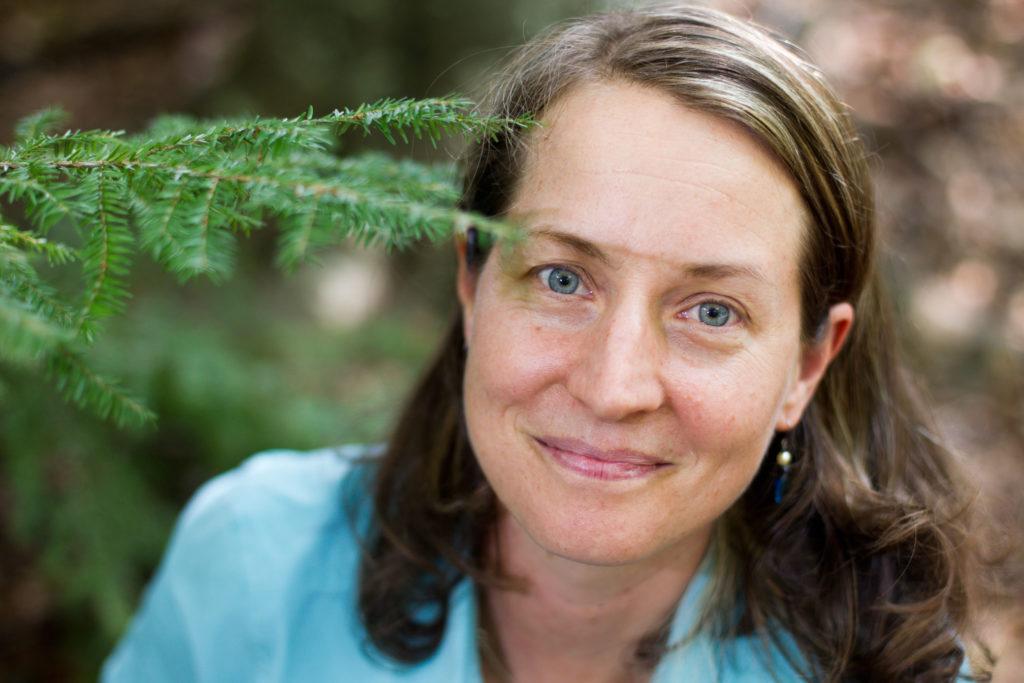Nearly every day when Jennifer Ceska walks into her lab at the State Botanical Garden of Georgia, she’s smiling.
“It’s great to see all this,” she said, motioning toward the landscape. “And soon there are kids coming out here to learn, and students come for classes. We even get painters setting up their easels.”
The plants that draw thousands of students and visitors to the garden every year are the reason for Ceska’s job. As statewide coordinator of the Georgia Plant Conservation Alliance, it’s her responsibility to help the state keep its endangered flora-such as pitcher plants and Georgia plume-healthy and thriving in the face of environmental changes.
The GPCA is a network of concerned groups that keeps track of how native plants fare in the wild and attempts to help them flourish, Ceska said.
“It’s bringing together everyone who has skills for helping rare plants and putting those projects together on the land. Botanical gardens are good at growing plants, so why not spend that time growing endangered plants?” said Ceska, who spends 50 percent of her time at UGA with the program. “Imagine that a plant is failing in the wild. We’re not seeing babies or seedlings. Why? If we can take cuttings or somehow get some seeds, we bring them to the botanical garden. And if we can grow them and make them happy and healthy, we can apply the techniques we used at the garden in the wild.”
Preserving the state’s landscape, however, is a job that’s too large for any one group. That’s why the GPCA relies on volunteers to keep an eye on plant populations and even tend to them in the wild, if necessary.
“It’s astounding how nature can recover when we give it a boost. Because of budget constraints, we’ve been learning about how counties and state governments have been mowing roadsides less frequently. It’s wonderful for native plants. So all these native flowers and grasses have come up, and people are saying ‘When did we plant these flowers?’ ” she said. “It’s opening some wonderful doors for roadside ecology and having our roadsides offer a sense of place. You’re driving through Georgia and you’re thinking wow this is beautiful, the plants tell our stories to people driving down I-75 to Disney World. It’s our plants that they’re seeing, and it’s nice if they tell Georgia stories.”
That kind of outlook is what helps Ceska make an impact at the garden and in the state. Co-workers say her attitude is irresistible.
“She’s got a very positive outlook, that’s what’s amazing about her,” said Heather Alley, a researcher at the garden and one of Ceska’s co-workers. “She stays positive in the face of the often depressing work we do-we see environmental destruction and species lost every day. A lot of conservationists get depressed about it, but she doesn’t. And it’s contagious.”
It’s so contagious that since heading up the Georgia program, Ceska has helped establish or consult with similar groups in North Carolina, Alabama and her native Texas.
But her love affair with plants didn’t start early. Before coming to UGA for graduate school in 1992, she majored in marine biology at Florida State University. A senior-year class changed her direction.
“I had an offer from SeaWorld to go work with Shamu, but I also took a field botany class at Florida State. I enjoyed it so much-learning to put names with all these plants we see every day,” she said. “It’s sounds funny to say, but putting names on plants makes you feel a connection to them. It changed the world for me. Then I found out about the program here at UGA and came up. Somehow studying plants rang true to who I was and what I could do.”
In fact, Ceska’s pro-conservation attitude may have spread further than she planned. Her 10-year-old son, Oliver, is a conservationist in his own right-he saves the weeds that she and her husband, Patrick, pull from the garden they tend at their Gainesville home.
“It’s funny. I’ll pull a weed, particularly an invasive plant like English ivy that has seeded into my garden at home, and he’ll pot it up because, he says, it’s not the plant’s fault that we brought here and it escaped,” she said. “So we’re working on that.”
